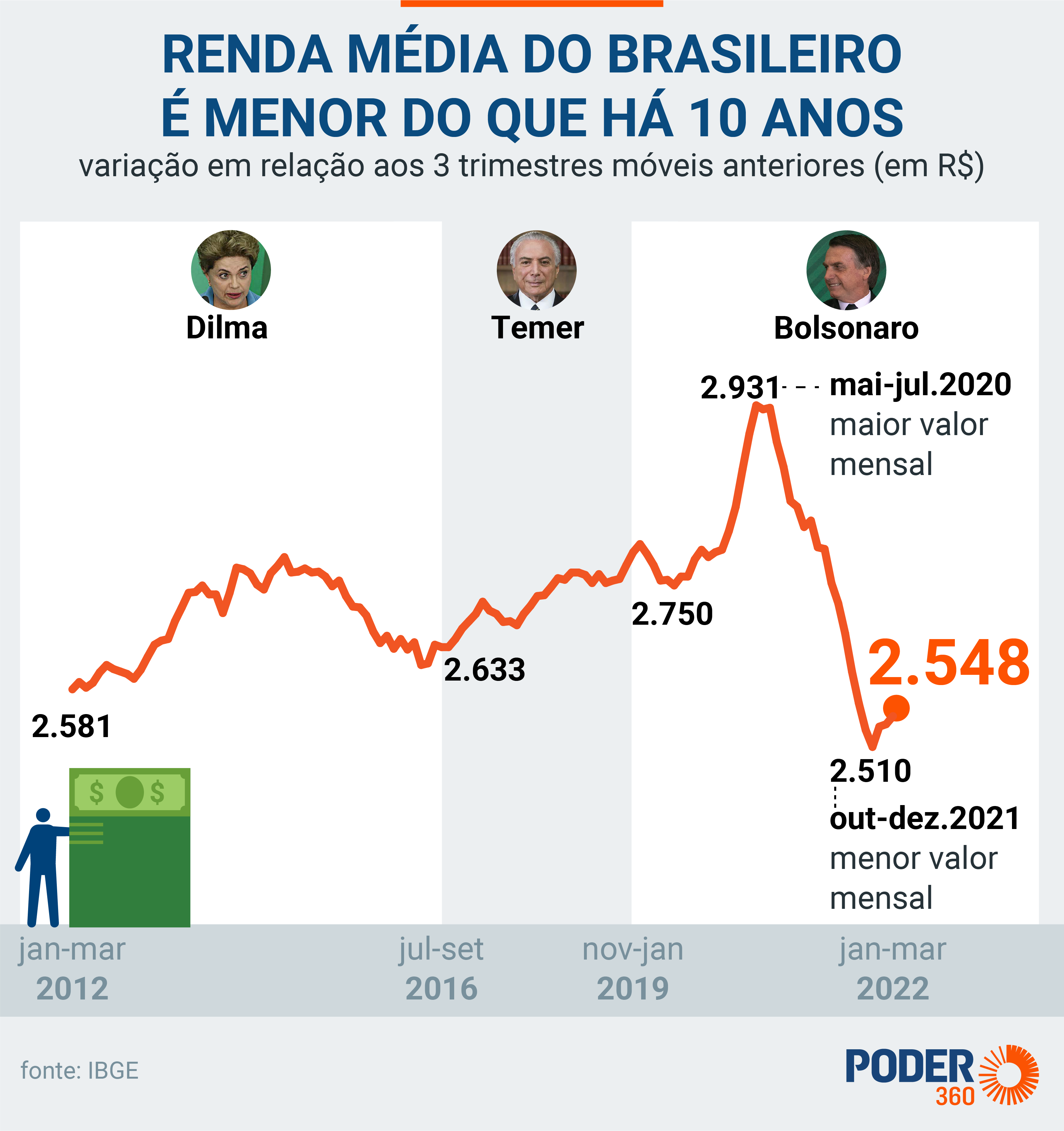RIO DE JANEIRO, BRAZIL – The average income of Brazilians is the lowest in 10 years and stands at R$2,548. In 2012, the average wage was R$2,581 (US$508). With inflation at 12% in the last 12 months and an interest rate of 12.75% (which is expected to rise further), further loss of purchasing power is expected.
There are a few explanations for the drop in income. One is high inflation at a time of economic loss due to the pandemic. While prices are rising, there is no parallel to a rise in salaries.
Another reason is the deterioration of the labor market since 2012, which has led to a country with more informal workers and more unemployed. Within ten years, the country has experienced two severe crises: at the end of the Dilma government (2015-2016) and then with the pandemic.

There are two types of problems: One is the statistical effect, the deterioration of the quality of employment. And the other is perverse inflation, inflation with unemployment,” explains Professor Hélio Zylberstajn, senior professor at FEA-USP (Faculty of Economics, Business, Accounting and Actuarial Science at the University of São Paulo) and coordinator of Fipe’s Salariômetro project.
For economist Bruno Ottoni, researcher of IDados and FGV, the high inflation and the changes in the profile of professionals in the market have changed average income values. The number of self-employed and informally employed has increased.
“The changes in the composition of the labor force led to a decrease in incomes. In other words, it was changed that increased the proportion of people in lower-paying jobs,” he says.
PEAK IN 2020
The highest average income value was recorded in the mobile quarter from May to July 2020, a period with severe restrictions due to the Covid 19 pandemic. There is an explanation for this growth.
Economists interviewed by Poder360 explain that the increase in layoffs and the breaks of informal workers during the closures caused the income from formal jobs to increase on average.
A little more than a year later, in the mobile quarter from October to December 2021, average income reached its lowest level since 2012: R$2,510.
Under current conditions, there is no prospect of improvement. “Income recovery is only possible in a context of growth and price stability,” says Carlos Alberto Ramos, an economics professor at the University of Brasilia (UnB). In April, the country recorded 12% cumulative inflation over 12 months. The interest rate is at 12.75%.
And this lower income is already reflected in families’ medium- and long-term plans. FGV labor market researcher Daniel Duque says the number of people in debt is growing.
“There’s an increase in credit, in families’ debt, probably because we have a greater supply of jobs, but with less pay. Families resort to financing and credit to maintain their purchasing power,” Duque says.
The challenge will be to control inflation and create an environment that allows for renewed economic growth in the short and medium term. According to economists interviewed by Poder360, there will only be room for progress in average income if inflation and expansion are controlled.
With information from Poder360

